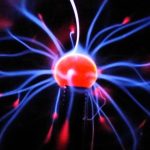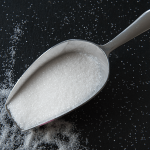Antibiotics – action and side effects
Antibiotics act by interfering with the body’s microorganism enzymatic systems. This is the scientific explanation. The problem is that those who conceived as well as those who use them do not know exactly which these systems are and which are the antibiotic’s points of action.
For example, we know that penicillin and bacitracin act in certain stages of development of the cellular wall, streptomycin acts on certain oxidant enzymes, tetracyclines and chloramphenicol act on the synthesis of proteins in bacteria while polymixins act on the membrane permeability. This way is made a selection of genetically modified bacteria, which explains why they become resistant. If bacteria are genetically modified, why couldn’t normal cells be genetically modified?
By definition, an antibiotic is a substance that opposes life. Generally speaking, antibiotics have a triple action:
• bacteriostatic (arrest the growth or multiplication of bacteria);
• bacteriolytic (cause a dissolution or lytic destruction of bacteria);
• bactericidal (kill bacteria).
Penicillin is such an antibiotic. Other antibiotics have only one of these actions. Aureomycin, for example, is only bacteriostatic.
What are the side effects of antibiotics (so little known by those they are prescribed to)?
• toxicity on the kidneys, liver, bone marrow and nervous system;
• allergic reactions;
• digestive intolerance reactions;
• lower the natural resistance against infections;
• a predisposition to malignant tumors.
Besides the above disturbances, we must say that antibiotics are responsible for a lot of mycoses and mental disorders.
As these medicines have a toxic effect on different tissues, causing allergic reactions and lowering natural resistance against infections, they also alter the normal terrain.
They may not be the direct cause of malignant tumors, but they pave the way for tumor implantation.
Genetically modified bacteria
If the biochemical activities of the cells involved in phagocytosis are not disturbed, the body will react vigorously against any aggression. However, by administering antibiotics we practice the devil’s medicine. Antibiotics interfere with the enzymatic system of microorganisms; furthermore, genetically modified bacteria or microbes discharge into the tissues, as a result of the mutation performed, toxins whose identity we do not know.
Enzymatic destructions
Because antibiotics cause an enzymatic disorder, this disorder will automatically be followed by an imbalance, not to say a dramatic vitamin destruction. We know, for example, that vitamin B2 or riboflavin, which has an important role in the protein and glucide oxido-reduction process and in the iron metabolism, is an active part in the formation of numerous enzymes, mainly oxidases, whose role is essential in cell breathing, as they carry hydrogen. Vitamin B2 can mix with enzymes and form, together with amino acids, hetero-proteins.
Though too little is known, we do know that after long or repeated treatments with antibiotics, the disruption of the gastrointestinal flora creates a deficiency of vitamin B2, with the result that the iron metabolism is disturbed and the liver is no longer functioning properly. There can appear hyperglycemia, mucosal and cutaneous disorders. Likewise, vitamin B3 or PP takes part in the formation of enzymes that carry hydrogen, while vitamin B5 or pantothenic acid is the building block of a complex enzymatic substance called coenzyme A, which also contains magnesium. Coenzyme A intervenes in the metabolism of proteins and glucides, especially in the nutrition of mucous membranes, epithelia and skin, as well as in the functioning of adrenal glands.
These three vitamins – B2, B3 and B5 – essential to cellular oxygenation – provide a natural protection against cancer. The insufficiency of oxygen is fatal to the cell, but at the same time the enzymatic reaction has to develop properly in order to use the oxygen captured by hemoglobin. Summarizing, if one of these three vitamins is lacking, tissues are debilitated because of an oxygen deficiency, opening the way for cellular anarchy, therefore cancer. In fact, by administering antibiotics the entire cycle is disturbed, altered, inhibited and sometimes destroyed. Enzyme alteration + vitamin alteration + hormone alteration + tissue alteration + hydroelectrolytic alteration + alteration of unknown factors = cancer.
We cannot deny the importance and necessity of antibiotics in urgencies associated with extremely serious diseases. Nevertheless, in most benign conditions, prescribing antibiotics is a medical error, because of the unwanted actions and side effects antibiotics have and because of antibioresistance.
Information extracted from the book La mafia pharmaceutique et agro-alimentaire, written by Dr. Louis de Brouwer.

Antibiotics – action and side effects by Technology for life is licensed under a Creative Commons Attribution-NonCommercial-NoDerivatives 4.0 International License.

 Previous Post
Previous Post Next Post
Next Post



